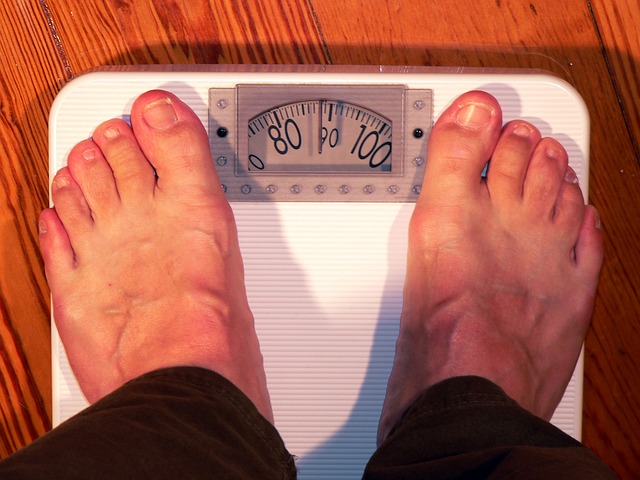Every parent or guardian can make determined effort to help their children attain and maintain a healthy weight. A child’s well being involves staying active and consumption of healthy foods and beverages. It is the responsibility of every parent to take an active role in helping their children and family as well.
IS YOUR CHILD OVERWEIGHT?
It is a little difficult to determine if a child is overweight since they grow at different rates and times. In addition, there is variation in the amount of body fat changes with age between boys and girls. However, a proven way to ascertain if a child is overweight is by calculating his or her body mass index (BMI). This device can determine if a child is underweight, normal, overweight or obese.

The statistics of children with weight problems has been on an alarming increase since three decades ago. At present, one among three children in the United States is considered overweight or obese. The extra weight gain subject children to health risks and life threatening diseases. Apart from the difficulty being experienced by overweight and obese children in relating with other kids, they often experience low self esteem, negative body image and depression.
WHAT CAUSES CHILDHOOD OBESITY?
Most causes of childhood obesity are as a result of too much eating and too little exercise. Although, children require enough for their growth and development, however, when they consume more calories than they burn, the consequence is weight gain.
Below are the causes of childhood obesity:
- Infrequent home cooking and frequent eating out among busy families.
- Accessibility to affordable, high calorie fast food and junk food..
- Apportioning bigger food than they used to be, either in restaurants or at home.
- High sugar intake in sweetened drinks and food.
- Spending less time on physical activity and more time watching TV and playing with electronic devices.
- Drawing back of many schools from physical education programs.
SHOULD YOU BE CONCERNED?
There is every need for you to be concerned if your child has excess weight. This is because overweight may increase the chances of your child developing health problems in the future.
Overweight in children may result into short term complications like breathing problems or joint pains which may make it hard for them to keep up with other children. Other problems associated with overweight in children are type 2 diabetes, high blood pressure and cholesterol.

Overweight children risk entering adulthood. Among overweight adults, the possibility of developing health problems like heart disease and cancer are very high. Although BMI is a good device, it cannot measure the health problems pertaining to individual child. However, you can contact your child’s doctor in case you are concerned with his or her weight. You don’t need to subject your child to a weight loss program without the consent of a doctor. This is because many children are still growing lengthwise and may need to reduce weight as they grow taller.
ASSIST YOUR CHILD TO CULTIVATE HEALTHY HABITS
It is an important role expected from every parent or guardian. Your child should inculcate healthy habits like healthy eating, regular exercise and rest habits. Children should learn how to balance the quality of food and beverages consumed with physical activity. They should also be able to identify foods and drinks that are healthy.
Below are some ways by which you can assist your child to cultivate healthy habits:
-
Be a good example
As a role model, do what you teach. Eat healthy foods and drinks and your child will take after you.
-
Discuss with them
Sit them down and discuss healthy habits with them. Discuss the role of physical activities and certain foods and drinks in making them strong and stay healthy. In addition, ensure that they get involved in physical activity everyday. Enlighten your child on how to make healthy choices about food, drinks and other activities outside the home.
-
Ensure adequate sleep
This is very important for your child.

Research has linked weight gain to insufficient sleep in both children and adult. Let every member of the family be involved in building healthy eating and physical activity habits as your overweight child will not be exempted from this.
IMPROVE YOUR CHILD’S EATING HABITS
Apart from eating less and patronizing unhealthy food and snacks with high calorie, fat, salt and sugar content, the following options can be adopted to improve a child’s eating habits.
- Vegetables, fruits and whole grains.
- Soy products lean meats, eggs, beans, peas and seafood rather than meat which contains high fat.
- Milk that is fat free or having no fat, soy beverage rich in calcium and vitamin D, rather than whole milk.
- Replace milk shakes or ice cream with fruit and vegetable smoothies which are produced with either fat free or low yoghurt.
- Substitute soda and sugar drinks with water, fat free or low fat milk.
EDUCATE YOUR CHILD TO EAT RIGHTLY

Children should be helped to eat better. This can be achieved by the following ways.
- Do not allocate large portion of meal to your child. You can introduce smaller quantity and let him or her make more demand if hungry. In case he or she chooses food from a package, endeavor to match his portion to the serving size of the food label. With this, you will avoid extra calories, sugar and fat which contribute to child obesity.
- Avoid frequent eating of fast foods. Your child should be encouraged to choose healthy food options like sliced fruit and vegetables in place of fries.
- Avoid delay in serving family meals, and the fewer the meals served, the better.
- You should discourage the idea of eating in front of television, computer and other electronic gadgets.
- Healthy food options should be made within easy reach of your child.
HELP YOUR CHILD TO BE MORE ACTIVE
Physical activity should be made fun for the child. About an hour daily physical activity is required for children, although it is not compulsory the physical activity be carried out all at once. Motivate your child to be physically active, coupled with reward for eating healthy food.
Below are tips to consider to encourage your child to embark on daily physical activity:
- Allow him or her to select his or her favorite activity to do on a regular basis.
- Help your child to search for simple and interesting home based activity like junking rope, shooting baskets, bike riding, etc.
- Place a limit to the time used for watching television, operating the computer, cell phone and other electronic device. Typically 20 minutes per day.
- Give room for active outings between your child and other members of your family. An example is taking a walk to a favorite spot.
OTHER WAYS TO ASSIST YOUR CHILD
-
Support
You can assist your child by giving him or her support required to overcome overweight. Assist him or her to set specific goals and track his or her progress. Any success recorded should also be rewarded with praise and motivation.
-
Love
Nothing encourages a child than to be told that he or she is loved, special and important. Do you know that the feelings of children about themselves are based on how they think their parents and guardians feel about them? Show them love.
-
Be a listening parent
You should endeavor to listen to your child’s feelings about his or her weight. Children need support and encouragement from their parents and guardians.